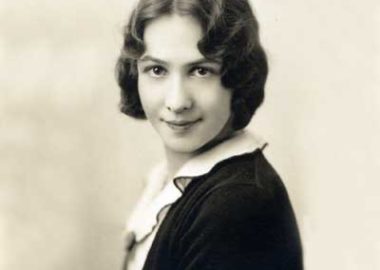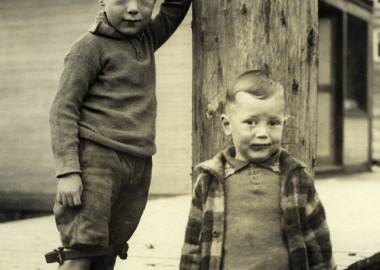My name is John Burns and I’m a recovering journalist.
In case that seems snide — 20 years in the field leave me with a wonky sense of what’s acceptable and what’s offside — I’ll mention that I don’t mean to offend 12 Steppers of any stripe.
I just can’t shake the need for cute leads.
Since I left the magazine world a few months back in order to join Echo Storytelling Agency, I’ve been asked a fair few times why I made the choice. Why would I trade in my job as an editor-in-chief for the title of Story Director? It’s a fair question, and one I certainly asked myself as I contemplated the shift.
Before I answer, a moment of affirmation.
Why Stories Matter
Michael Margolis is the founder of Get Storied, an online consultancy based in San Francisco and New York. As well as preaching the value of good business stories (a practice we at Echo heartily endorse), Get Storied teaches the nuts and bolts of persuasive narrative. And because I’d be seeing Michael at the company’s 2015 conference, I signed up for his introductory course, Story Your Future: A Course on Transformational Storytelling, hoping to get the inside track on his thinking. In the course’s opening remarks, Michael sets the scene:
“Your story is your currency. It’s about becoming relatable, accessible, and approachable — through sharing both your personal story and your professional story. Business is increasingly personal. You can’t strip the personal out. In fact, you probably need more of it.…The more you tell the story of who you truly are, and the experiences that inform this quest, the easier it is for people to get to know you, see you, and believe you.”
Heady stuff, and by the time I reached his final exhortation I was hooked:
“As I share more of my deepest story story with you, you’ll see how you too can embrace the ever changing nature of reality. There’s never been a better or more exciting time to do just that. Story yourself into being!”
The Best of The Times, the Worst of The Times
Storytelling drew me to journalism. My first reporting and editing jobs coincided with my years getting a master’s degree in film and theatre. At school I was trying to understand how artists used creativity, language and beauty to persuade and change the world. (I was in my 20s.) Because I was also working at the same time, the fields blurred — perhaps my romanticization of the trade began then. Storytelling can change the world! I thought. So journalism can change the world!
Or maybe it was my love of stylish old movies in which reporters save the day. I was watching (alongside Star Trek: New Generation) a lot of Sunset Blvd., Citizen Kane, His Girl Friday, Lady in the Lake, I Want to Live — again, convincing myself I was joining the noblest profession on Earth. Add in All the President’s Men and of course I was hooked. It was The Crusade!
Never mind that by this juncture my “journalism” job was making classified ads for escort services.
Well, the internet killed newspaper-delivered prostitution just as surely as today it’s killing the rest of newspaper sections, and I suppose the internet is one reason I ultimately quit journalism. (I don’t hate the internet, just to be clear. I Facebook and Google recipes and download guitar tabs as much as the next person. Hell, I’m blogging right now while listening to Music for Airports and having a high old time.) Online has many, many benefits, but every up has a down, and the internet poses its own downsides. One: the internet, with its perplexing ROI, has caused a creeping hysteria to infect reporting — to stand out from the noise, everything today needs ever more spin; everything needs to atomized onto ever more platforms and social channels; everything needs to be ever more keyworded and SEO’d. That’s probably fine if it’s celebrity gossip, but the same craven submission to the marketplace holds true of council reports, and investigations into murder and corruption, and book reviews. (Are there still book reviews?)
I tried to hold onto a core set of basic beliefs. That storytelling is important. Stories are important. Not just because they keep the ads apart, but because they help us make sense of the world: stories give order and meaning to everyday existence. In fact, they are the organizing principle for life as we know it, so don’t they deserve care? Even though the process of gathering and confirming and contextualizing them can be long, and difficult, and expensive, and (occasionally) frustrating?
Yet today the bulk of reported stories are hastily written, hastily edited, hastily published. No facts are checked; no sober second thoughts entertained. Stakes high, resources stretched, audiences indifferent, you end up with all the journalism gaffes of the last dozen years: the New York Times apologies, the outlandish claims by television personalities like Brian Williams and Bill O’Reilly. As James Wolcott wrote in Vanity Fair, those last two are signals of:
“the end of an era, the last twilight of big-ticket, high-visibility anchor-brows in the dinosaur diorama. The news-media landscape is being so flattened, atomized, listicled, aggregated, and accelerated that it’s running out of prominent figures and familiar landmarks to steamroller, lurching toward the idiocracy that writer-director Mike Judge prophesied in the movie of the same name.”
It’s publishing at the speed of… Well, the evolution is books on vellum → books on paper → newspapers → newsletters → blogs → Facebook → Twitter → Snapchat → ???
My movie preferences suggest that what I craved was more vellum, fewer pixels — and there’s a smidge of truth to that. But also, I wanted more thought, less rush. Stories were the right medium for me. But I was telling them at the wrong end of the media industry.
What I missed
I missed contemplation.
I missed double checking.
I missed honesty. Not everything ends up in every story. Janet Malcolm, the celebrated reporter for the New Yorker, wrote a book called The Journalist and the Murderer in which she tried to detail the complicated interdependencies that arise between writer and subject: the favours and obligations and blurrings that arise in all human interaction but that in journalism are airbrushed out of the picture. I don’t mind airbrushing, but I like to be honest that it’s happening.
I missed work/life balance.
I missed humanity. At my last job, we had a credo: “All stories begin with a person. No stories exist without people.” We were trying to assert that we were in the business of people: creating stories by people for people about people. Yet increasingly, I found that drive stymied by the need to heed Google Analytics or advertisers or focus groups — dehumanized targets. I would suggest you can have focus on genuine readers who share your curiosity and passions or you can have instantaneity. But you can’t have both.
Click to Tweet: “You can have focus on genuine readers who share your curiosity & passions or you can have instantaneity.” #storytelling http://ctt.ec/FKNe5+
What I Found
I still love story, and landing at Echo has been the balm my soul needed. Telling the stories of our clients allows me to use 20 years of craft to indulge that love. Through the understanding and shared experiences that are the end goal of story I get to keep helping people understand people, which to my view is how we keep the world spinning. (I’m still in touch with that idealistic 20-year-old who wanted to help the world. “Saving” it seems a little less likely.)
Given the decline of journalism and the impatience of the public, it’s no wonder that lots of smart people are migrating to this new field. People like award-winning novelist Mohsin Hamid, who is Chief Storytelling Officer for Wolff Olins, and the folks who believe that Corporate Storytelling Is Replacing the News Business.
Like them, I believe that story is indeed my currency. It allows me to relate, to approach and access real stories that move hearts and change minds. It is deeply personal, which feels like the best use of my time possible and loops me back to those heady days when I discovered the grand creaky world of journalism in the first place.
Through my first few weeks at Echo, I’ve already fallen in love with:
- A man who found his love in the 1940s but because he was Jewish and she was Gentile, they were forced to marry at City Hall, telling no one. After they wed, they continued to live apart, with their respective mothers, meeting furtively or not at all. For 10 years. 10 years! His recollections of that time are surprising, shocking (by today’s standards) and unforgettable.
- A man who went out on his own when he could have stayed with the large company that first employed him. All was fine until the fledgling venture ran out of cash. Faced with this financial crisis, he did what any brash entrepreneur might do: headed to the poker table and won a million dollars. He recently retired from the company, but today it’s worth billions.
- A boy born so sick he nearly didn’t make his second day. For years after, doctors told his family to prepare for the worst. Yet they remained sure he’d live to adulthood and their faith was rewarded when through multiple operations he beat the overwhelming odds. What I love about his story is the devotion of his entire family. His father underwent surgery for him; his grandmother underwent surgery for him. His parents learned technical and invasive nursing practices to be able to tend him at home. He suffered endless discomfort and indignity. They endured more anxiety than any family should. But nobody gave up.
At Echo, it takes a team of writers, researchers, art directors and editors two long years to tell each story of humanity. Stories that are personal and true, told without focus groups or keyword generators but with immense heart and soul and smarts. Not every story in the world has a happy ending, but these all did, even if it took a while to get there. It gives me hope that my own story can end happily as well.
How not to be a journalist






